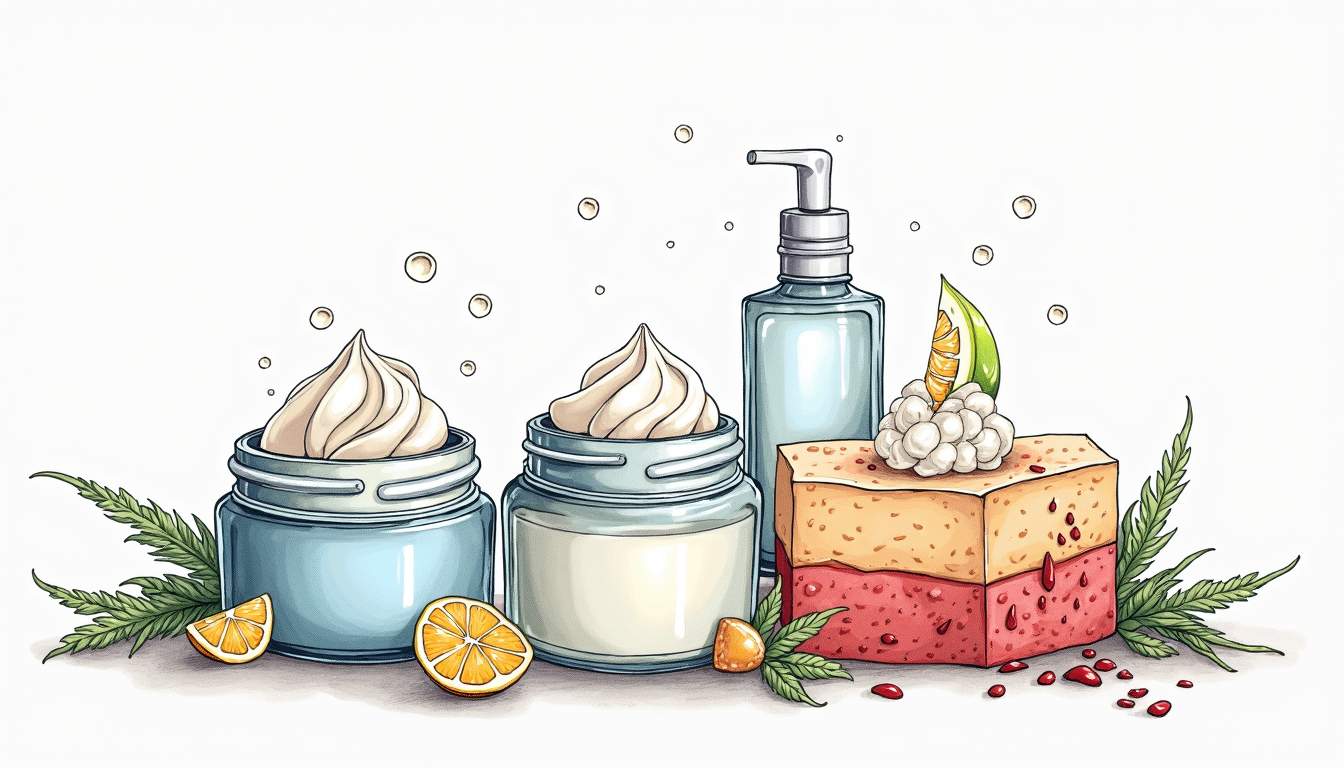
Introduction to Occlusive Agents
Occlusive agents are substances that create a barrier on the skin, effectively preventing moisture loss and protecting the skin from external irritants. In dermatology, these agents play a crucial role in the management of various skin conditions, particularly those characterized by dryness, irritation, or compromised skin barriers. Understanding the function and application of occlusive agents is essential for both healthcare professionals and patients seeking effective skincare solutions.
These agents are often used in conjunction with other therapeutic modalities, such as moisturizers, emollients, and topical medications, to enhance their efficacy. By forming a protective layer, occlusive agents can significantly improve skin hydration levels, promote healing, and alleviate symptoms associated with various dermatological conditions.
Types of Occlusive Agents
Occlusive agents can be categorized based on their composition and the specific properties they impart to the skin. The most common types include:
- Petrolatum: A semi-solid mixture of hydrocarbons derived from petroleum, petrolatum is one of the most effective occlusive agents available. It is often used in ointments and creams to provide a long-lasting barrier against moisture loss.
- Mineral Oil: This lightweight oil is derived from petroleum and is commonly used in cosmetic formulations. While it provides some occlusive properties, it is less effective than petrolatum in preventing transepidermal water loss.
- Beeswax: A natural wax produced by honeybees, beeswax is often used in skincare products for its occlusive and emollient properties. It helps to lock in moisture while providing a protective barrier on the skin.
- Dimethicone: A silicone-based compound, dimethicone is frequently used in skincare formulations for its smooth application and occlusive properties. It helps to create a barrier that retains moisture while providing a silky feel.
Mechanism of Action
The primary mechanism of action of occlusive agents is their ability to form a physical barrier on the skin's surface. This barrier reduces transepidermal water loss (TEWL), which is the process by which water evaporates from the skin into the environment. By minimizing TEWL, occlusive agents help maintain optimal hydration levels within the skin, which is crucial for overall skin health.
Additionally, occlusive agents can enhance the penetration of other topical medications and active ingredients. When applied in conjunction with other therapeutic agents, occlusive agents can facilitate better absorption and efficacy, making them valuable in the treatment of various skin conditions such as eczema, psoriasis, and dermatitis.
Applications in Dermatology
Occlusive agents are widely used in dermatology for a variety of applications, including:
- Management of Dry Skin: Conditions such as xerosis (dry skin) and ichthyosis can benefit significantly from the use of occlusive agents. By preventing moisture loss, these agents help to alleviate dryness and improve skin texture.
- Wound Healing: Occlusive dressings that contain occlusive agents are often used in wound care to create a moist environment conducive to healing. This can accelerate the healing process and reduce the risk of infection.
- Atopic Dermatitis: Patients with atopic dermatitis often experience compromised skin barriers, leading to increased water loss and susceptibility to irritants. Occlusive agents can help restore the skin barrier and reduce flare-ups.
- Psoriasis Treatment: In psoriasis management, occlusive agents can enhance the penetration of topical corticosteroids and other treatments, improving their effectiveness in reducing inflammation and scaling.
Benefits of Using Occlusive Agents
The use of occlusive agents in dermatological practice offers numerous benefits, including:
- Improved Skin Hydration: By reducing transepidermal water loss, occlusive agents help maintain skin hydration, which is essential for skin elasticity and overall health.
- Enhanced Healing: Occlusive agents can promote a moist wound environment, which is beneficial for the healing of cuts, abrasions, and other skin injuries.
- Barrier Protection: These agents provide a protective layer that shields the skin from environmental irritants, allergens, and pathogens, reducing the risk of skin irritation and infection.
- Increased Efficacy of Other Treatments: When used in combination with other topical therapies, occlusive agents can enhance the absorption and effectiveness of active ingredients, leading to improved treatment outcomes.
Considerations and Precautions
While occlusive agents offer significant benefits, there are important considerations and precautions to keep in mind when using them:
- Skin Type: Individuals with oily or acne-prone skin may need to exercise caution when using occlusive agents, as they can potentially exacerbate breakouts or lead to clogged pores.
- Allergic Reactions: Some individuals may experience allergic reactions or sensitivities to certain occlusive agents, particularly those derived from petroleum or certain natural sources. It is important to perform a patch test before widespread application.
- Application Frequency: Overuse of occlusive agents can lead to skin irritation, so it is essential to follow the recommended application frequency and guidelines provided by a healthcare professional.
Conclusion
Occlusive agents are a vital component of dermatological care, offering numerous benefits for maintaining skin health and managing various skin conditions. By understanding their mechanisms of action, applications, and potential drawbacks, both healthcare providers and patients can make informed decisions about their use. Whether in the form of ointments, creams, or dressings, occlusive agents play a crucial role in enhancing skin hydration, promoting healing, and protecting the skin from environmental stressors.
As research in dermatology continues to evolve, the understanding of occlusive agents and their applications will likely expand, leading to more innovative and effective skincare solutions for patients. It is essential to consult with a dermatologist or skincare professional to determine the most appropriate occlusive agents for individual skin needs and conditions.
Visit Our Offices
Services:
- • Medical Dermatology
- • Surgical Dermatology
- • Laser Treatments
- • Cosmetic Dermatology
Services:
- • Medical Dermatology
- • Surgical Dermatology
- • Laser Treatments
- • Cosmetic Dermatology
Visit Our Offices
Services:
- • Medical Dermatology
- • Surgical Dermatology
- • Laser Treatments
- • Cosmetic Dermatology
Services:
- • Medical Dermatology
- • Surgical Dermatology
- • Laser Treatments
- • Cosmetic Dermatology